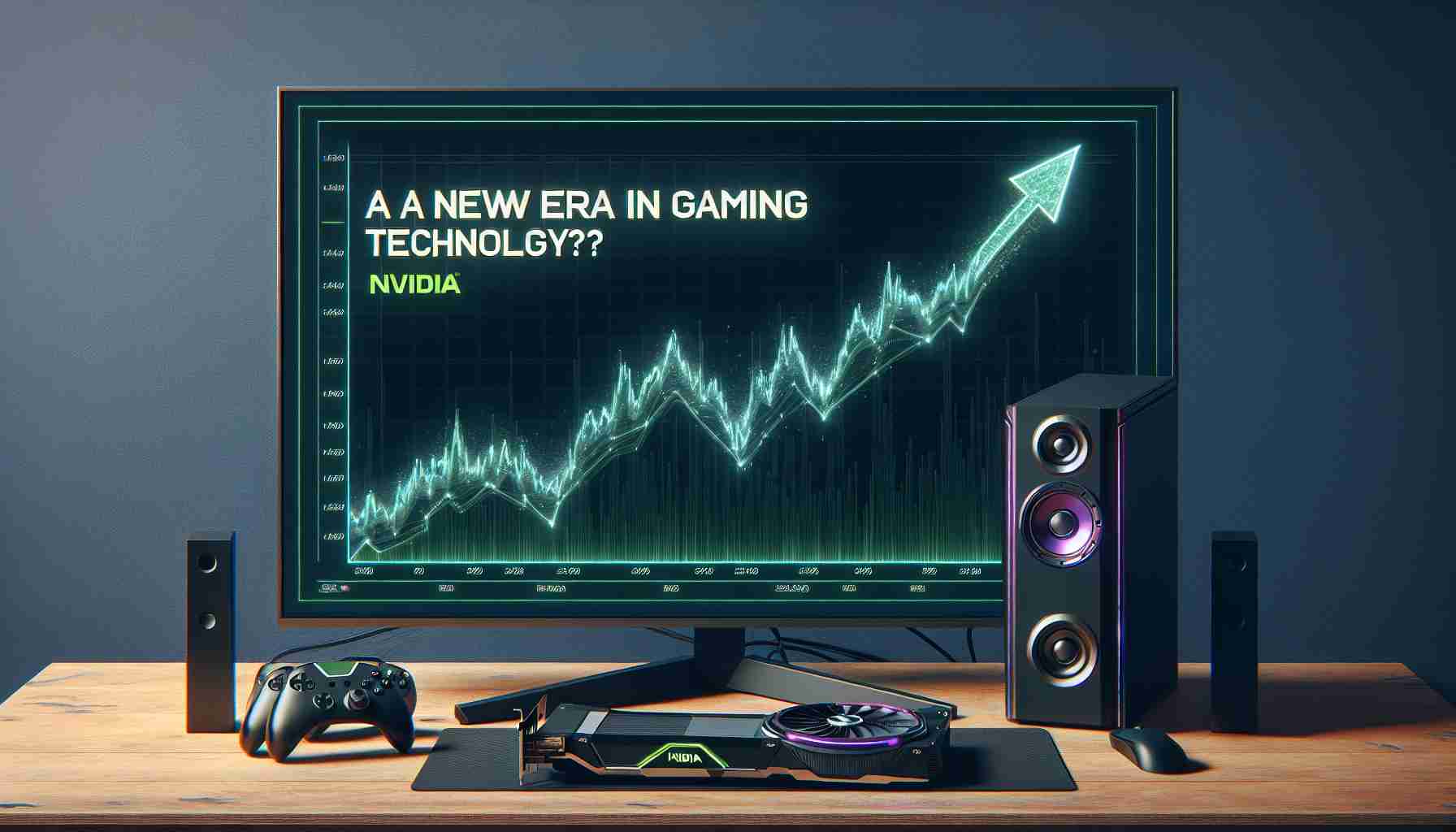In an era where gaming technology is evolving at an unprecedented pace, NVIDIA Corporation is strategically positioning itself as a driving force behind this revolution. The recent surge in NVIDIA’s stock, known as “shares” in UK English, is not merely a reflection of typical market flux; it captures a deeper narrative of innovation and strategic foresight.
The company’s latest ventures into artificial intelligence (AI) and machine learning are opening new horizons in gaming. By leveraging its advanced GPU technology, NVIDIA is empowering game developers to create more lifelike worlds and characters, enhancing player immersion like never before. The seamless blending of AI with gaming platforms holds the promise of revolutionary user experiences.
Furthermore, NVIDIA’s focus on the emerging metaverse marks another compelling reason for the stock’s upward trajectory. The metaverse—a collective virtual shared space—relies heavily on high-performance graphics technology. NVIDIA’s expertise in GPU development positions it as a key player in crafting the infrastructure needed for this digital realm. Such innovations don’t only enrich gaming experiences but are pivotal in transcending conventional gaming boundaries.
The introduction of NVIDIA’s latest DLSS (Deep Learning Super Sampling) technology further underlines its commitment to enhancing gaming performance. By employing AI to boost frame rates without compromising visual fidelity, NVIDIA is not just refining but redefining what gamers can expect from their devices.
In conclusion, NVIDIA isn’t just witnessing a rise in stock prices; it is pioneering a transformation in how gaming is experienced. As technology continues to evolve, NVIDIA’s role is crucial in shaping the future of interactive entertainment.
NVIDIA’s Quantum Leap: Beyond Gaming into Real-world Solutions
In the wake of significant advancements made by NVIDIA Corporation in gaming technologies, there’s an often overlooked dimension: the broader implications of NVIDIA’s innovations in sectors beyond gaming. These innovations influence our lives, communities, and even national infrastructures, raising both opportunities and challenges.
NVIDIA’s AI and machine learning capabilities are not limited to gaming. They extend into healthcare, where AI is used for predictive analytics and diagnostics, providing doctors with new tools to improve patient outcomes. The incorporation of NVIDIA GPUs in medical imaging allows for faster and more accurate readings, which can be crucial in early diagnosis and treatment, potentially saving lives.
Another sector witnessing NVIDIA’s transformative impact is autonomous vehicles. By powering the AI systems that drive self-driving technology, NVIDIA is at the forefront of a transport revolution, promising safer roads and more efficient travel. However, this also spurs debates about job displacement and ethical concerns with AI decision-making.
On a geopolitical level, countries investing in these technologies position themselves as leaders in the digital economy. Nations utilising NVIDIA’s tech for smart cities can improve urban living through better traffic management and energy efficiency. Yet, the growing reliance on such systems also invites questions about data privacy and cybersecurity.
While the advantages of NVIDIA’s innovations are clear, such as higher efficiency, life-saving technologies, and enhanced user experiences, there are also disadvantages, primarily in terms of ethical considerations and potential inequality in access to cutting-edge technologies.
For more on how NVIDIA is shaping the future, visit link name.















